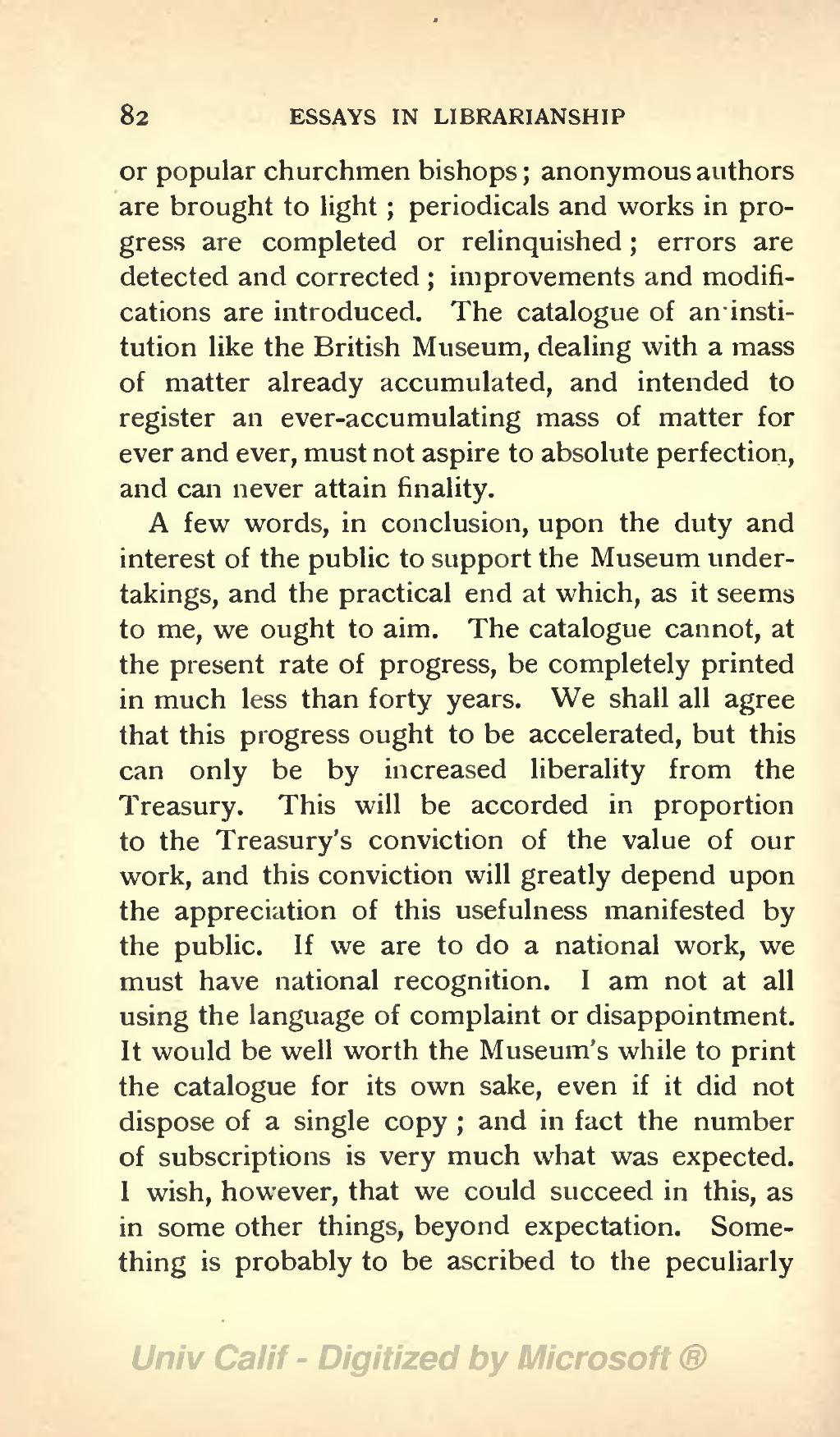or popular churchmen bishops; anonymous authors are brought to light; periodicals and works in progress are completed or relinquished; errors are detected and corrected; improvements and modifications are introduced. The catalogue of an institution like the British Museum, dealing with a mass of matter already accumulated, and intended to register an ever-accumulating mass of matter for ever and ever, must not aspire to absolute perfection, and can never attain finality.
A few words, in conclusion, upon the duty and interest of the public to support the Museum undertakings, and the practical end at which, as it seems to me, we ought to aim. The catalogue cannot, at the present rate of progress, be completely printed in much less than forty years. We shall all agree that this progress ought to be accelerated, but this can only be by increased liberality from the Treasury. This will be accorded in proportion to the Treasury's conviction of the value of our work, and this conviction will greatly depend upon the appreciation of this usefulness manifested by the public. If we are to do a national work, we must have national recognition. I am not at all using the language of complaint or disappointment. It would be well worth the Museum's while to print the catalogue for its own sake, even if it did not dispose of a single copy ; and in fact the number of subscriptions is very much what was expected. I wish, however, that we could succeed in this, as in some other things, beyond expectation. Something is probably to be ascribed to the peculiarly

